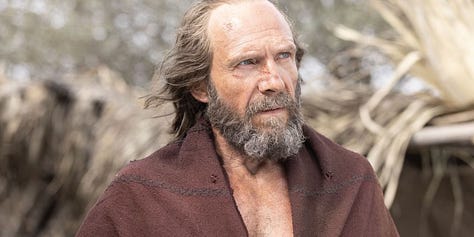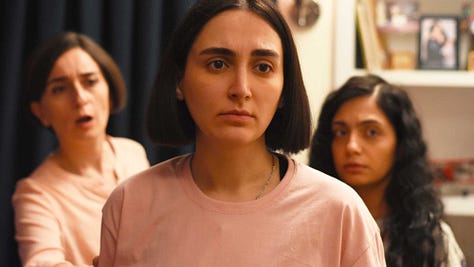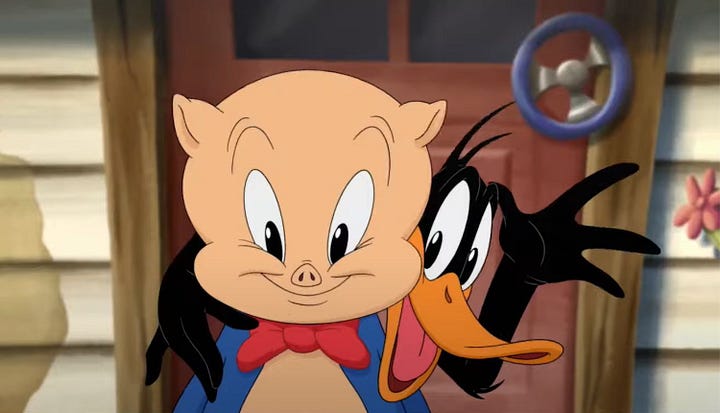Monday new releases: 31 March 2025
The Return, A Working Man, The Seed of the Sacred Fig, Bonhoeffer: Pastor. Spy. Assassin. and Looney Tunes: The Day the Earth Blew Up are all in cinemas





This week, two films about warriors battling post-traumatic stress who are forced out of retirement one last time in order to fight an emerging evil, two films about peace-loving people challenged to take up arms against state-sanctioned evil, and two innocents manage to save the world from catastrophe in spite of themselves.
In The Return, director Uberto Pasolini (with co-screenwriters John Collee and Edward Bond) goes back to the classics. By choosing one of the final chapters of Homer’s Odyssey, they are more interested in the fallout from adventure than Odysseus’ adventures themselves. When the unrecognisably dishevelled former king (Ralph Fiennes) washes up on the shores of his home island of Ithaca, he has been away for decades on a journey that brought glory (the Trojan campaign and that wooden horse) but also tragedy. Unwilling to face his people with the truth he disguises himself (easily as it turns out) as a beggar and learns what has become of his wife, son and subjects since he gallivanted off around the Peleponnese all those years ago.
His wife, Penelope (Juliette Binoche), is surrounded by optimistic suitors, hoping that they can take Odysseus’ place and the riches they think go with it. Their son, Telemachus (Charlie Plummer), is a rebellious youth who knows everything about what’s right and wrong except how to fix things.
The Return is a classy production, as you might expect, and the script is suitably highbrow without disappearing up its own fundament (like William Tell earlier this year). The dénouement is so violent that it came as a surprise to many in our audience – hearing people gasp is one of the great pleasures of the cinema that just aren’t the same at home – and Fiennes acquits himself so well you wonder whether he didn’t miss a trick by not moving into action films a long time ago. (Maybe the failure of The Avengers reboot put him off.)
For a long time in The Return, I thought it was a story of post-traumatic stress, of guilt and shame –and it is that – but it also asks whether a warrior can ever really change. Is that danger going to be ever-present, and what does that mean for the people who love him?
The same question is also at the core of David Ayer’s new collaboration with Jason Statham, A Working Man, the follow-up to the surprise smash The Beekeeper last year. Once again, Statham finds a way to excuse his inability to run an American accent by being an ex-Royal Marine, now widowed and living in Chicago to be close to his daughter, whose grandparents keep him at arm’s length. He’s traumatised by the loss of his wife, his guilt for prioritising service to country over his family, his impending loss of access to his daughter. He’s living in his truck in order to save for legal fees to fight this injustice but as his truck is worth as much as a small house, you have to wonder if he’s really thought that plan through.
Despite his determination to “not be that person anymore”, he’s surprisingly quick to get back into action when he sees innocent people threatened or, especially, when his boss’s daughter is kidnapped by Russian people traffickers. Then he’s off to the races, as he becomes detective, judge, jury and executioner, working his way through the ranks of oligarchical henchmen. Each set-piece is suitably enlarged on the one before and the “kills” – as they call them – are often quite inventive.
As usual, Statham’s limitations are his strength, and the ridiculousness of the Russians is a joy. I’m perfectly happy for them to be the all-purpose villains for our current generation.
The Seed of the Sacred Fig states its allegorical intentions up front with the opening captions, telling how the ficus religiosa wraps its roots around the host plant, “eventually strangling it”. Yet another Iranian film, shot in secret and then smuggled out of the country, you have to wonder whether the Iranian government realises that their restrictions, censorship and imprisonment are actually causing more masterpieces to be made than ever before – certainly seems counter-productive.


